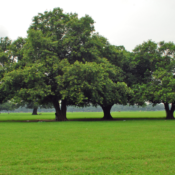
Shivratri in Kolkata: A Celebration of Faith and Devotion
Maha Shivratri, the grand night of Lord Shiva, is celebrated with immense devotion and enthusiasm across India. In Kolkata, a city known for its cultural richness and spiritual vibrancy, this festival takes on a unique charm. Every year, devotees gather in large numbers to seek the blessings of Lord Shiva, engaging in age-old rituals and customs that reflect the city’s deep-rooted traditions.
Significance of Maha Shivratri
Maha Shivratri, meaning ‘The Great Night of Shiva,’ holds a special place in Hindu mythology. It is believed that on this night, Lord Shiva performed the divine dance of creation, preservation, and destruction. Devotees observe fasting, perform rituals, and chant prayers throughout the night to honor Lord Shiva and seek his divine grace. The festival symbolizes the triumph of light over darkness and the pursuit of spiritual enlightenment.
Iconic Shiva Temples in Kolkata
Kolkata is home to several ancient and revered Shiva temples that become focal points during Maha Shivratri. Among them, the following temples draw the largest crowds and host elaborate celebrations:
- Tarakeshwar Temple: Located on the outskirts of Kolkata, this temple is a major pilgrimage site. Devotees from across West Bengal visit to offer prayers and participate in the night-long vigil.
- Baba Bhutnath Temple: Situated in the heart of the city near Kalighat, this temple witnesses a massive influx of devotees who come to offer milk, honey, and bael leaves to Lord Shiva.
- Mahesh Temple: Located in Serampore, this ancient Shiva temple is known for its grand Shivratri celebrations and spiritual ambiance.
- Shiv Mandir at Bally: This temple is another popular destination where thousands gather to perform rituals and celebrate the night in devotion.
Rituals and Traditions
Maha Shivratri in Kolkata is marked by a series of rituals that devotees follow with deep reverence:
- Fasting: Many devotees observe a strict fast throughout the day, consuming only fruits and water, while some undertake a complete fast without food or water.
- Abhishekam (Ritual Bathing): The Shivalinga is bathed with milk, honey, yogurt, ghee, and water, symbolizing purification and devotion.
- Chanting of Mantras: Continuous chanting of “Om Namah Shivaya” resonates in temples, creating a powerful spiritual atmosphere.
- Night Vigil (Jagran): Devotees stay awake through the night, singing bhajans (devotional songs) and offering prayers to Lord Shiva.
- Offering Bael Leaves: Bael leaves, considered sacred to Lord Shiva, are offered as a mark of reverence and faith.
Cultural and Community Celebrations
Beyond the religious observances, Maha Shivratri in Kolkata is also a community event. Many neighborhoods organize cultural programs, including classical music and dance performances dedicated to Lord Shiva. Local markets bustle with activity as people buy puja items and festive sweets.
Temples are adorned with elaborate decorations and illuminated with oil lamps, creating a mesmerizing ambiance. Special langars (community feasts) are organized to provide free meals to devotees and the underprivileged.
Spiritual Significance for Devotees
For many Kolkatans, Maha Shivratri is a time for introspection and spiritual renewal. It is believed that sincere prayers on this night can absolve sins and lead to spiritual liberation (moksha). The festival brings people together in a shared expression of faith, reinforcing the city’s ethos of unity in diversity.
Conclusion
Maha Shivratri in Kolkata is not just a religious observance; it is a vibrant celebration of devotion, culture, and community spirit. As the city resonates with chants and the fragrance of incense fills the air, the festival stands as a testament to Kolkata’s enduring spiritual heritage and the timeless allure of Lord Shiva.



